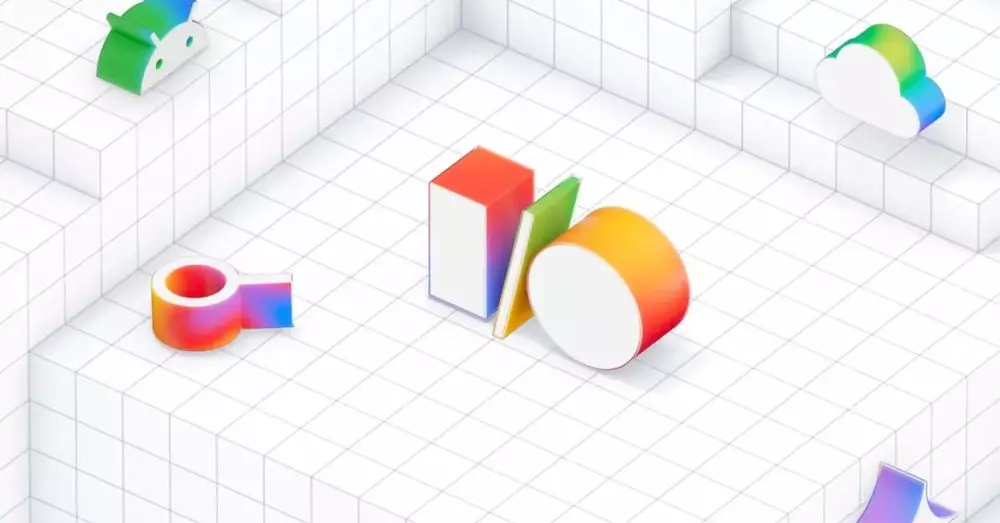As the date for Google’s I/O developer conference approaches, excitement builds among developers, tech enthusiasts, and industry experts alike. Scheduled for May 20th and 21st, this year’s conference is set to make waves, primarily due to its focus on Artificial Intelligence (AI) and Extended Reality (XR). The opening keynote, a highlight of the conference, is anticipated to be a deep dive into AI advancements alongside a sneak peek into developments in XR technology. With significant innovations expected, attendees and virtual viewers alike will be keen to see what Google has in store.
Shifting Focus: A Departure from Traditional Android Announcements
Unlike previous years where the spotlight shone brightly on Android OS updates, this year marks a clear shift in focus. Google has already delivered a comprehensive overview of Android updates prior to the conference, leaving little room for further operating system discussions. The expectation that this keynote will center primarily on AI is not merely speculation; rather, it’s a reflection of the ongoing tech landscape. As the AI race intensifies with formidable competitors like OpenAI, Meta, and Microsoft, Google’s emphasis on showcasing Gemini—a fundamental aspect of their AI strategy—comes as no surprise. The tech giant is evidently committed to differentiating itself and pushing the envelope of what AI can achieve in everyday technology.
Preparing for a Grand Showcase of AI Innovations
With AI technology seeming to change the rules of the game, Google is expected to introduce impressive new features, tools, and applications culminating from their Gemini initiative. This innovation isn’t just about advancing algorithms; it encapsulates a broader vision of integrating AI into devices and environments that enhance user experience. Anticipation surrounds potential updates regarding Project Astra, which could showcase ambitious applications of AI that transcend current market offerings. The juxtaposition of Google’s I/O event following Microsoft’s Build developer conference adds an interesting dynamic; the back-to-back showcases may spark comparisons that direct attention to the strengths and weaknesses of each technology leader’s strategies.
Extended Reality: The Future Beyond AI
While AI may dominate the headlines, it would be unwise to dismiss the significance of XR in Google’s agenda. The company has been hinting at updates regarding Android XR, particularly the promising smart glasses that could potentially redefine how users interact with digital content. With competitors like Samsung prepping their own XR devices, Google finds itself in a race not just to innovate but also to deliver compelling narratives around its technologies. As part of its strategy, Google aims to ensure that the software underpinning these devices is robust, intuitive, and ready for experimentation in the fast-evolving XR space.
The Evolution of Keynotes: From Hardware to Software
It’s noteworthy that Google has shifted from using I/O as a platform for launching new hardware like Pixel phones and smart home technologies. The last week’s announcements about Android gadgets indicated a possible end to this tradition, leaning instead towards enhancing existing systems with more integrated software solutions. The decision to keep hardware unveilings separate may signify a strategic focus to prevent dilution of the key messaging surrounding AI advancements. As vibrant as the gadget launch narratives could be, Google has clearly decided that prioritizing AI and software is paramount in the current technological climate.
Where Does Google Stand Against the Competition?
Google finds itself at a pivotal moment, where it must not only lead in innovation but also articulate a clear vision of its AI capabilities relative to competitors. The upcoming I/O keynote is not just a conference; it’s a critical opportunity to solidify its standing in a highly competitive landscape. With the expectations from the developer community soaring, any lackluster response could affect its reputation and market position. Thus, the pressure is on to deliver insights that resonate deeply with both developers and technology consumers.
As Google continues to innovate during this pivotal conference, it will be fascinating to observe how their efforts define the trajectory of AI and XR technologies, setting new standards for what the future may hold. The eyes of the world are firmly on Google’s I/O, and only time will tell how they will rise to meet the challenge.

